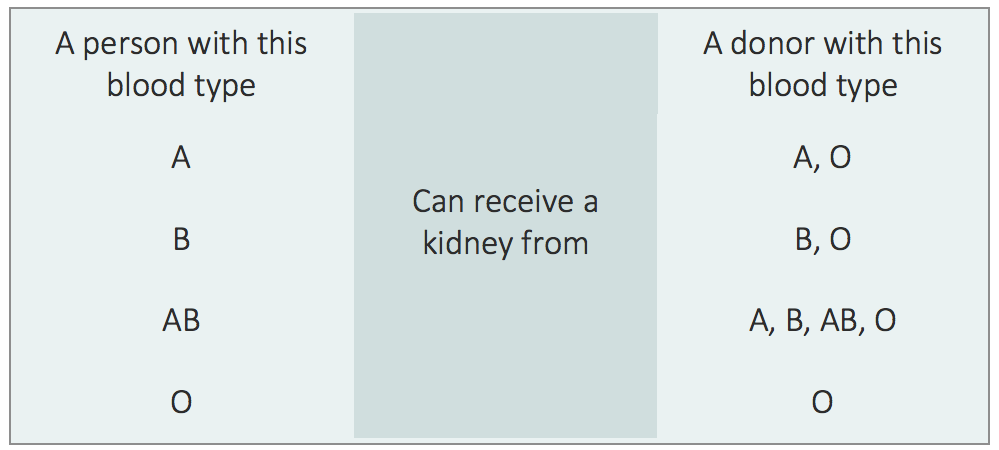Donors often have misconceptions that only family members can donate. However, there are many different types of donors, and many are not blood relatives of the person who needs a kidney.
Most people over the age of 21 (and in some cases, over the age of 18) can become kidney donors if they are in good general health and have normal kidney function and anatomy.
According to the Consensus Statement on the Live Organ Donor...
"The person who gives consent to be a live organ donor should be competent, willing to donate, free from coercion, medically and psychosocially suitable, fully informed of the risks and benefits as a donor, and fully informed of the risks, benefits, and alternative treatment available to the recipient."
JAMA 2000;284:2919-2926
Donors must be free of major diseases such as diabetes, high blood pressure (some mild forms of high blood pressure are no longer considered an exclusion to donating), or severe heart disease.
Donors should not have recent cancer, history of certain forms of cancer, liver disease or a history of multiple kidney stones.
Testing of the potential donor will ensure that there is adequate kidney function so that the donor can survive on one kidney alone. The donor needs to be living in a stable environment with social supports and must have medical insurance before donation. The potential donor must be able to demonstrate understanding of the donation process, the risks involved in the surgery, and the need for follow-up visits after donation.
Potential donors do not need to be a relative of the person needing a kidney, although relatives often offer a better genetic match for the recipient.
Thanks to advances in surgical techniques that enable minimally invasive surgery for donors as well as improvements in anti-rejection medications, we can now allow both related and unrelated people to donate.
Generally, unrelated donors have some emotional relationship with the recipient, such as a spouse, friend, neighbor, or co-worker. However, altruistic donors (people who wish to donate a kidney but do not have a specific recipient in mind) now represent an increasing proportion of living donors.
In addition, blood type and crossmatch compatibility used to be required for living donor transplantation. However, due to the availability of Kidney Paired Donation programs, donor and recipient pairs that are blood type or crossmatch incompatible can "swap" with other pairs. These programs are also offered to compatible pairs seeking a better age or genetic matched kidney.
Learn more about Kidney Paired Donation.



